Glypican 3 Products
The glypicans (GPC) constitute a family of glycosylphosphatidylinositol (GPI)-anchored, heparan sulfate proteoglycans. Six members of this family have been identified in mammals (GPC1-GPC6). All glypican core proteins contain an N-terminal signal peptide, a large globular cysteine-rich domain (CRD) with 14 invariant cysteine residues, a stalk-like region containing the heparan sulfate attachment sites, and a C-terminal GPI attachment site.
Mutations in Glypican 3 cause a rare disorder in humans, Simpson-Golabi-Behmel Syndrome, which is characterized by pre- and postnatal overgrowth of multiple tissues and organs and an increased risk for developing embryonic tumors. These features are also present in the mouse knock-out of Glypican 3 indicating that Glypican 3 regulates cell survival and inhibits cell proliferation during development. Glypican 3 has been implicated in regulating many different signaling pathways including: IGF, FGF, BMP and Wnt. An endoproteolytic processing of Glypican 3 by proprotein convertases is required for the modulation of Wnt signaling. Direct interaction of Glypican 3 with FGF-basic has been observed and is mediated by the heparan sulfate chains.
237 results for "Glypican 3" in Products
237 results for "Glypican 3" in Products
Glypican 3 Products
The glypicans (GPC) constitute a family of glycosylphosphatidylinositol (GPI)-anchored, heparan sulfate proteoglycans. Six members of this family have been identified in mammals (GPC1-GPC6). All glypican core proteins contain an N-terminal signal peptide, a large globular cysteine-rich domain (CRD) with 14 invariant cysteine residues, a stalk-like region containing the heparan sulfate attachment sites, and a C-terminal GPI attachment site.
Mutations in Glypican 3 cause a rare disorder in humans, Simpson-Golabi-Behmel Syndrome, which is characterized by pre- and postnatal overgrowth of multiple tissues and organs and an increased risk for developing embryonic tumors. These features are also present in the mouse knock-out of Glypican 3 indicating that Glypican 3 regulates cell survival and inhibits cell proliferation during development. Glypican 3 has been implicated in regulating many different signaling pathways including: IGF, FGF, BMP and Wnt. An endoproteolytic processing of Glypican 3 by proprotein convertases is required for the modulation of Wnt signaling. Direct interaction of Glypican 3 with FGF-basic has been observed and is mediated by the heparan sulfate chains.
| Sensitivity: | 20.6 pg/mL |
| Applications: | ELISA |
| Assay Range: | 78.1 - 5,000 pg/mL (Cell Culture Supernates, Cell Lysates, Serum, EDTA Plasma, Heparin Plasma) |
| Source: | NS0 |
| Accession #: | P51654.1 |
| Applications: | Bind |
His-tag
| Source: | NS0 |
| Accession #: | P51654.1 |
| Applications: | BA |
Biotinylated
| Source: | CHO |
| Accession #: | P51654.1 |
| Applications: | BA |
| Assay Range: | 0.312 - 20 ng/mL |
| Applications: | ELISA |
| Source: | HEK293 |
| Accession #: | XP_005594665.1 |
| Applications: | BA |
| Source: | CHO |
| Applications: | BA |
Recombinant Monoclonal Antibody.
| Reactivity: | Human, Rat |
| Details: | Rabbit IgG Monoclonal Clone #GPC3/1534R |
| Applications: | IHC, ICC/IF, Flow |
| Reactivity: | Human |
| Details: | Mouse IgG2a Monoclonal Clone #307801 |
| Applications: | Flow |
Recombinant Monoclonal Antibody
| Reactivity: | Human |
| Details: | Human IgG1 Monoclonal |
| Applications: | ELISA, Flow, Func |
| Reactivity: | Human |
| Details: | Rabbit IgG Polyclonal |
| Applications: | IHC, WB |
| Source: | HEK293 |
| Accession #: | P51654.1 |
| Applications: | BA |
His-tag
| Source: | NS0 |
| Accession #: | P51654.1 |
| Applications: | BA |
| Reactivity: | Human |
| Details: | Mouse IgG2a Monoclonal Clone #307801 |
| Applications: | Flow |
| Reactivity: | Human |
| Details: | Mouse IgG2a Monoclonal Clone #307801 |
| Applications: | Flow |
| Reactivity: | Human |
| Details: | Mouse IgG2a Monoclonal Clone #307801 |
| Applications: | Flow |
| Source: | NS0 |
| Accession #: | AAH36126 |
| Applications: | BA |
For use with catalog number DGLY30
| Applications: | ELISA, Ctrl |
| Reactivity: | Human |
| Details: | Mouse IgG2B Monoclonal Clone #CL12711 |
| Applications: | IHC |
| Reactivity: | Human, Rat |
| Details: | Rabbit IgG Polyclonal |
| Applications: | IHC, WB, ICC/IF |
| Reactivity: | Human |
| Details: | Mouse IgG2a Monoclonal Clone #307801 |
| Applications: | Flow |
Recombinant Monoclonal Antibody
| Reactivity: | Human |
| Details: | Rabbit IgG Kappa Monoclonal Clone #GPC3/8148R |
| Applications: | IHC |
Recombinant Monoclonal Antibody
| Reactivity: | Human |
| Details: | Rabbit IgG Kappa Monoclonal Clone #GPC3/8127R |
| Applications: | IHC |



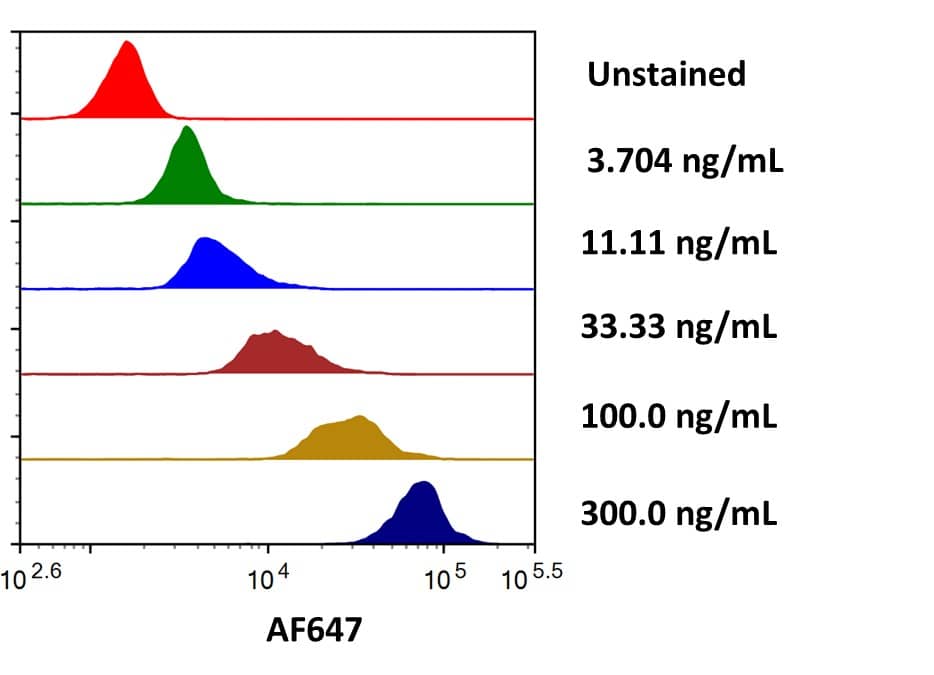
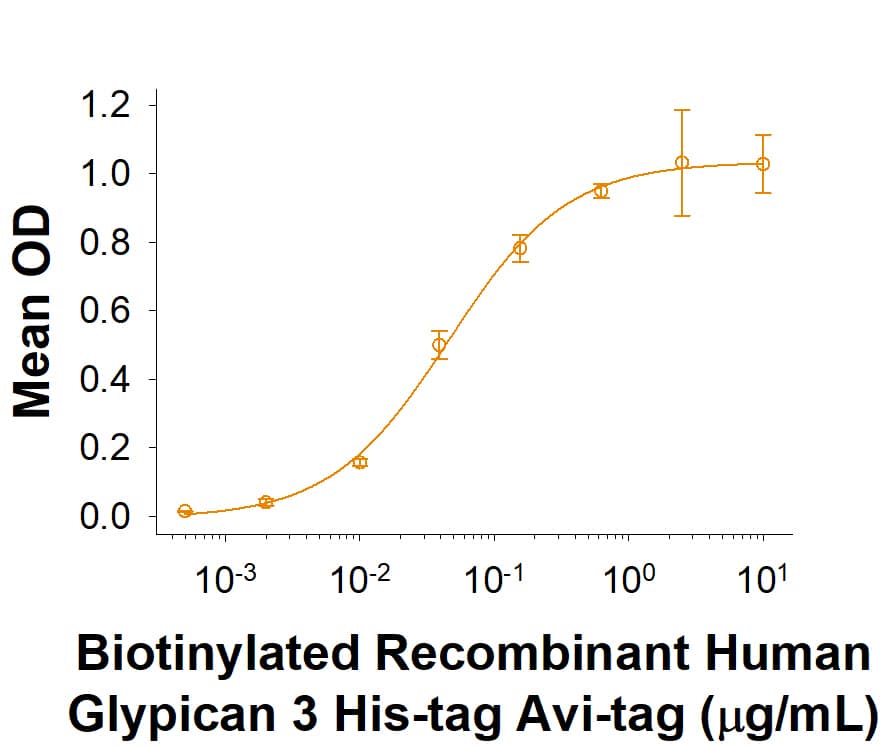


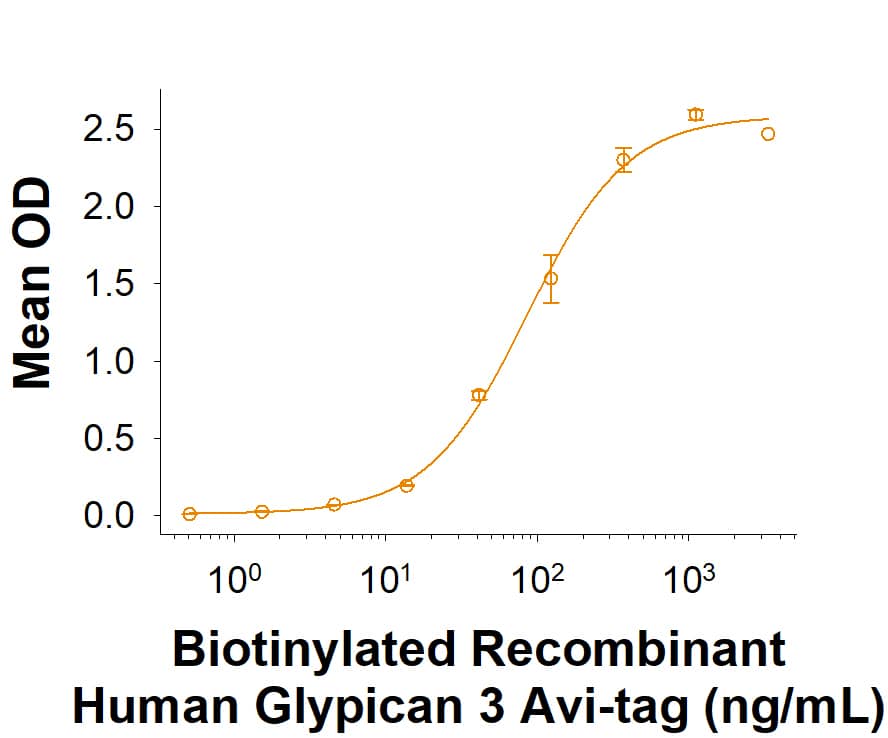

![Immunocytochemistry/ Immunofluorescence: Glypican 3 Antibody (GPC3/1534R) [NBP2-53142] Immunocytochemistry/ Immunofluorescence: Glypican 3 Antibody (GPC3/1534R) [NBP2-53142]](https://resources.bio-techne.com/images/products/Glypican-3-Antibody-GPC3-1534R-Immunocytochemistry-Immunofluorescence-NBP2-53142-img0003.jpg)
![Functional: Glypican 3 Antibody (Codrituzumab) - Humanized[NBP3-28387] - Glypican 3 Antibody (Codrituzumab) - Humanized](https://resources.bio-techne.com/images/products/nbp3-28387_cho-glypican-3-mab-codrituzumab-humanized-20620242262118.img%3Fimgid=5264)
![Western Blot: Glypican 3 Antibody [NBP2-36558] Western Blot: Glypican 3 Antibody [NBP2-36558]](https://resources.bio-techne.com/images/products/Glypican-3-Antibody-Western-Blot-NBP2-36558-img0005.jpg)
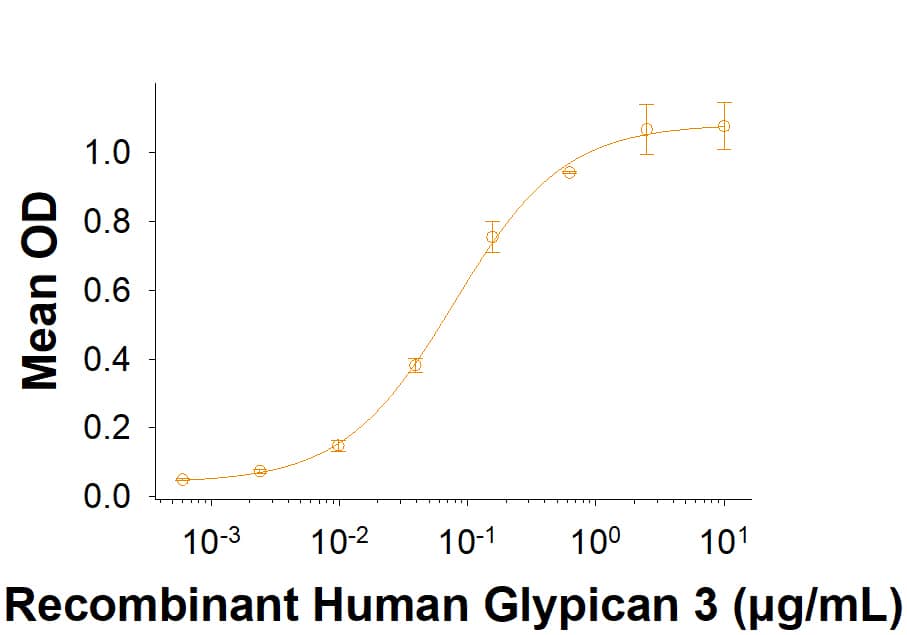
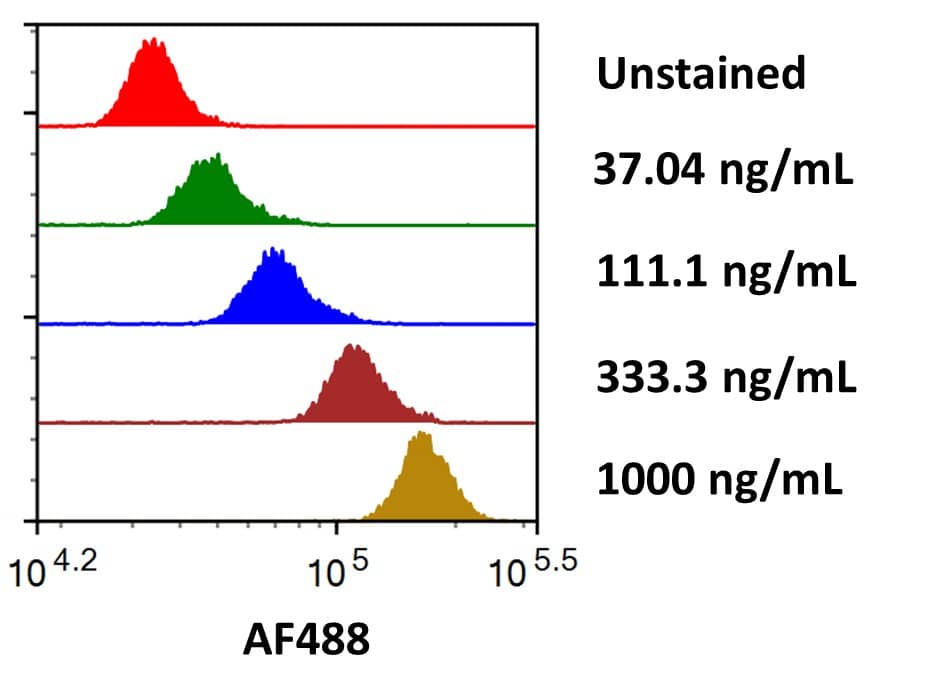

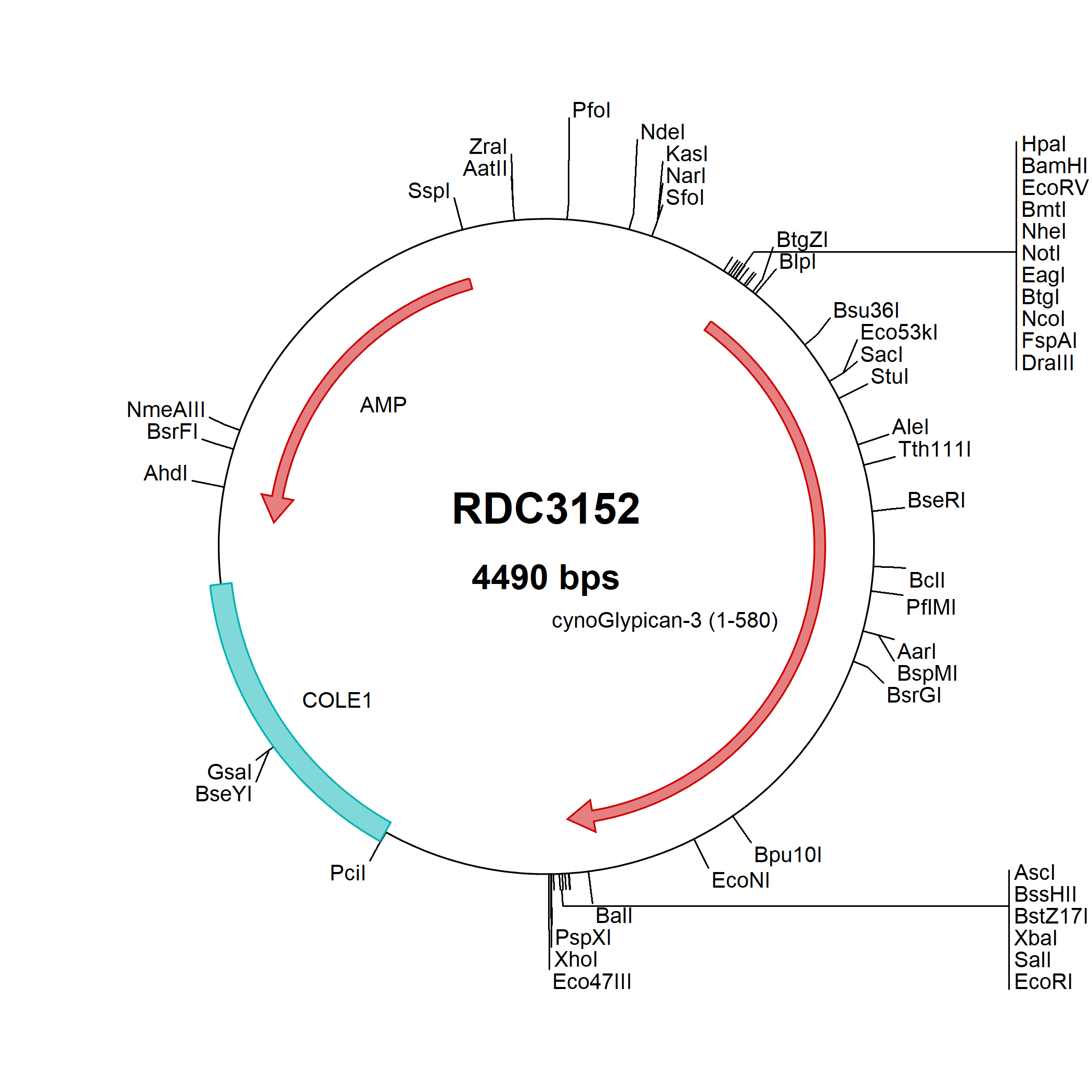
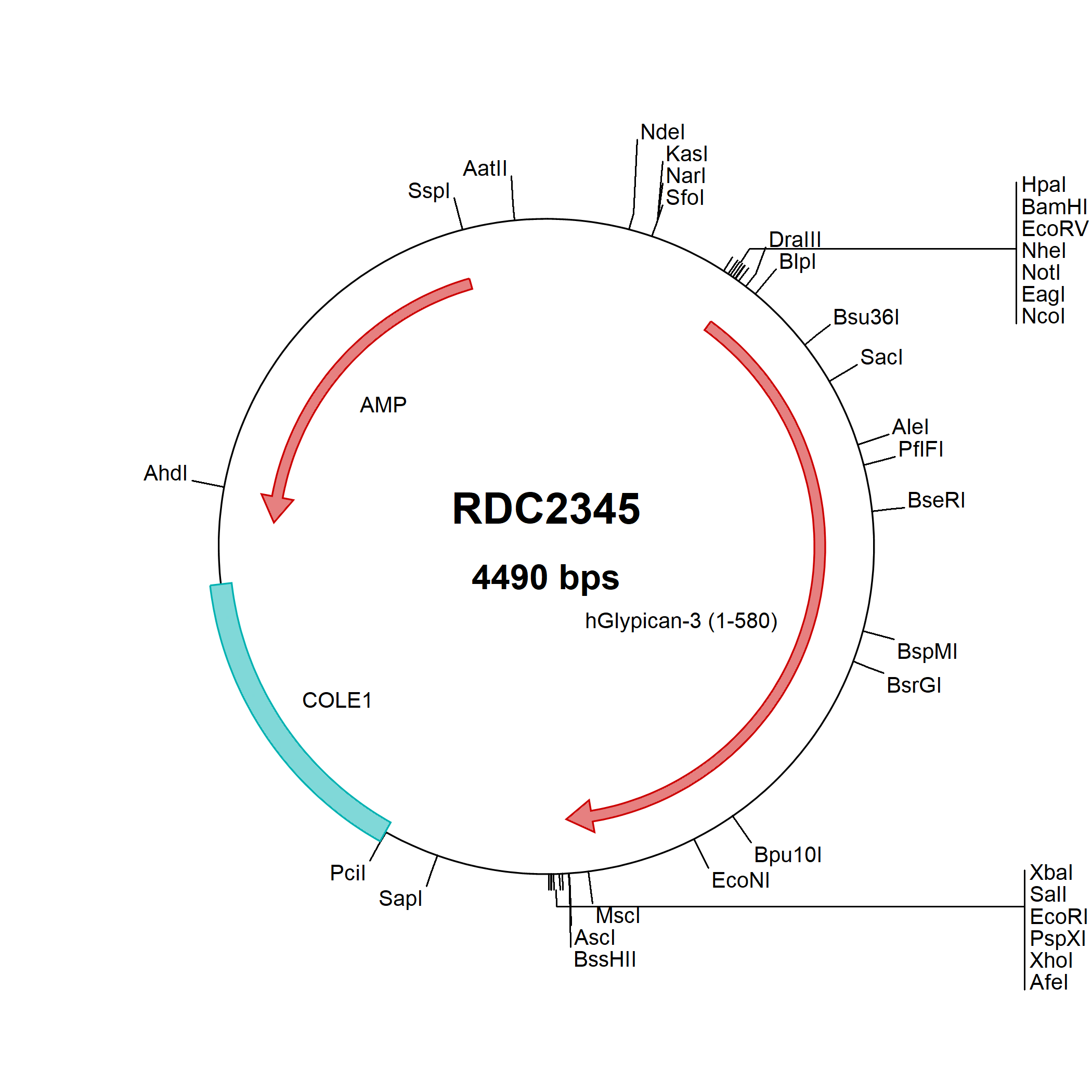
![Immunohistochemistry-Paraffin: Glypican 3 Antibody (CL12711) [NBP3-18542] Immunohistochemistry-Paraffin: Glypican 3 Antibody (CL12711) [NBP3-18542]](https://resources.bio-techne.com/images/products/Glypican-3-Antibody-CL12711-Immunohistochemistry-Paraffin-NBP3-18542-img0001.jpg)
![Immunocytochemistry/ Immunofluorescence: Glypican 3 Antibody [NBP1-85226] Immunocytochemistry/ Immunofluorescence: Glypican 3 Antibody [NBP1-85226]](https://resources.bio-techne.com/images/products/Glypican-3-Antibody-Immunocytochemistry-Immunofluorescence-NBP1-85226-img0001.jpg)

